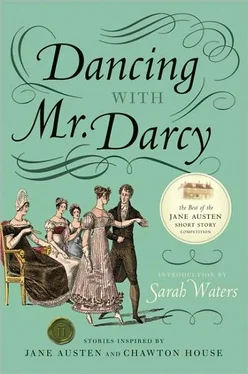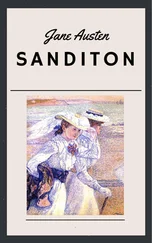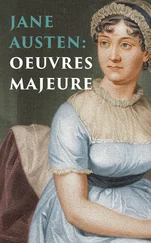‘I like computers,’ Miss Campbell said, ‘but I like books, too. And I don’t think computers can replace them.’
She looked up, curious to see how he’d respond, but by then Matt was sending text messages.
At the launch event she avoided him. Easily done. Matt was busy impressing the local government luminaries who had bankrolled his new library, telling them about the events planned to promote it. They clustered around him, looking even more ironed and dry-cleaned than the librarians, who were at pains to look their best. A champagne reception at work was a rare treat and they were out to make the most of it.
Angela followed Miss Campbell’s gaze.
‘He’s such a high flyer, Matt. I wonder, will he still be with us in six months, or will he move on to some other milestone project?’
‘Who cares?’ said one librarian.
‘Fine by me if he goes,’ said another. ‘We’ll cope without.’
‘He gave me a lecture last week on the benefits of change,’ Miss Campbell said. ‘I took him at his word. I’m selling my flat and moving out of London.’
‘Isn’t now a bad time to sell?’
‘Only the worst for thirty years, they say. But I’m not waiting thirty years for the next good time.’
There was a rush of questions about where she was moving to, and she told them.
‘Oh, not such a long commute,’ Angela said. ‘So you’ll stay on here? At the library I mean.’ The look she gave Miss Campbell said: don’t do anything foolish, my girl.
‘Like Matt says – change can be a good thing. There’s a little library out that way needs a volunteer. I’ll love the work, and if all goes well they’ll think of me when a paid vacancy comes up.’
Half disbelieving, half envious, they raised a toast to her new life and the conversation moved on. Later Angela took her to one side.
‘If you don’t mind my saying, I hope you’ve thought things through. Doesn’t pay to be too impulsive, does it?’
Miss Campbell thought of Mary Shelley. Always hard up. No wonder, since her menfolk were so careless with their finances -but she never let money take over. If she had done there’d be less of interest for a modern reader to learn about her now. As things stood, the time was ripe for a serious in-depth study, and she might just be the person to undertake it.
‘Doesn’t the danger lie in entrusting our future to others? Like bankers, I mean. Perhaps, Angela, we should take charge—’
‘Don’t bring “the recession” into this. I’m thinking of you, is all. You don’t want to make things hard on yourself.’
Miss Campbell smiled.
‘I’m thinking of me, too. I’m thinking, “I only have one life and it could end any time.” There are a few things I’d like to do before that happens, do you know?’
Light and shadow flickered across Miss Campbell’s face as the train passed a stand of bare-branched trees. Then, in the open fields, the sun steadied and she closed her eyes to focus on its warmth. Already the journey felt familiar. This time she was going south to look for a flat. She had boxed her things in readiness; early that morning a man from Oxfam had come to collect her donation.
‘Not the kind of stuff we normally get. Gone off beans, then, have you?’ he asked as he lifted the crates of tinned food.
Miss Campbell smiled. She’d stopped believing there was much point in preparing for a plague or for the end of the world. If it came, it came.
He nodded towards the cardboard boxes. ‘Those old hardbacks, you’ll be wanting them gone too, my love?’
‘Oh no,’ she said. ‘I’ll be needing those.’
The train continued south at a leisurely pace. In the sunlight the snow softened and began to dissipate. Brooks and streams, unfrozen, grew brown with snowmelt and brimmed over to lap at fields, their eager ripples forming new and temporary lakes.
My inspiration: The inspiration for this story came from a visit to Chawton House Library one snowy day in February, 2009, to read works by Mary Shelley. Snowmelt was also shaped by other recent events in my life and in the world of books, and by a conversation with Chawton House librarian, Jacqui Grainger.
The Watershed
Stephanie Shields
I adopted the brace position from North Cheam to Seaford. Sandwiched between my two older cousins, I only straightened my back to draw air into my constricted lungs. Surreptitiously, Aunt Martha placed two nitroglycerine tablets under her tongue. Maggie, to my left, studied the fleeting verge. James, head tilted slightly to the right, pale-blue eyes abstracted, appeared to be focusing inwards.
Had I been the man who conducts driving tests, I would have sent Uncle Simeon straight back to the centre and prescribed another twenty lessons. Perhaps this was a harsh and arrogant judgement from a seventeen-year-old who didn’t drive yet. However, I had driven with my father since I was seven and he exemplified courtesy, common sense and restraint. Uncle Simeon lacked these qualities. If I had to single out the fault beyond all others it was this: he chose, invariably, to overtake in the face of oncoming traffic. This single fault carried a plethora of associated sins. The most embarrassing of these was his compulsion to accompany these near misses with gestures most vulgar, some of which I was unfamiliar with. All school children know the ‘V’ sign. This he reserved for the milder misdemeanours that he attributed to other, less reckless, road users.
At seventeen, you are particularly susceptible to feelings of acute embarrassment. Cheeks, eyebrows, and a certain set of the lips – each can be a ‘giveaway’. Not one to blush, my eyes and mouth were mirrors to my soul. Aunt Martha’s lips remained blue throughout the journey – I feared they were the mirror to her heart. She had a soft, kind face, but a spectral pallor and lines of worry and hurt were etched around her eyes and mouth.
Uncle Simeon was exceedingly kind to me. However, kindness should perhaps be viewed with caution if it can be seen as a way of being unkind to others. Towards his own children he was combative and antagonistic; he was a harsh taskmaster and judge.
At this time, I was not entirely at ease with myself. There were a number of reasons for this. Age was certainly one, and the second was this unfamiliar family.
In the early August of this summer of 1966, I was travelling home to Leicestershire from a pleasant, albeit troubled, holiday in Brixham, Devon. My mother was an emotional map reader. She had directed my father further east than we might have anticipated. She loved to break her journey in the Cotswolds; she was particularly fond of tea and scones at the Swan Hotel, in Bibury, so I can only surmise that elements of design and wilfulness had come to the fore in her interpretation of the best route home. Mother had these qualities in abundance. As we passed Basingstoke, she declared we would call on her cousin Simeon Cameron.
My father groaned: ‘Why, oh, why?’ Exhaustion mingled with exasperation.
‘You haven’t spoken to him in twenty-three years.’
‘Precisely the reason. “Ne’er let the sun go down on thy wrath,”’ she quipped, emphatically.
‘Excuse me, but the sun’s gone down quite a few times since you lot fell out.’
‘Look, we’re almost at North Cheam, so now is the time. It could be a long time before we pass this way again.’
There were tears of joy and hugs and kisses – ah, sweet reconciliation. The four children, veritable strangers, withdrew from the adults and twenty-three years’ worth of catching up and reminiscence, preferring to perambulate the main street of North Cheam. It proved an area conducive for cousinly bonding. We craned to see the interior of the Blue Dragon Chinese Restaurant with its maroon flock wallpaper and gilt sidelights, with red-draped nylon shades and tassels – so exotic. We studied the menu, etched with blue dragons and taped to the window; we chose what we imagined would be our favourite dishes. Chow mein sounded just right for me, with crispy noodles and soy sauce. Opportunities for culinary experimentation were limited in the Leicester suburbs. James and Maggie spoke with greater authority, having sampled some of the dishes off that very menu. My brother David always spoke with authority and plumped for Peking duck.
Читать дальше












